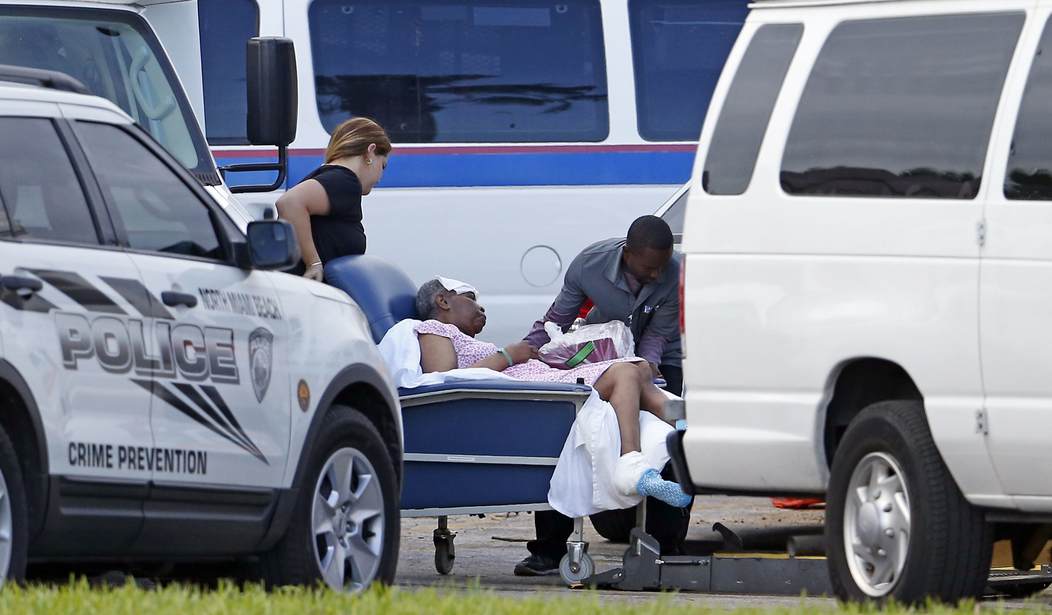Spring break is back in fashion now that most of the COVID restrictions have been lifted and that means that Miami Beach is once again the destination of choice for tens of thousands of college students and beach party aficionados. Unfortunately, there have been some unwelcome guests showing up at the parties, some of whom brought guns. Last weekend, five people were shot, though none fatally. This led Mayor Dan Gelber and City Manager Alina Hudak to demand immediate action. On Wednesday they declared a state of emergency and announced a series of midnight curfews, particularly on the weekends. Additional measures were already being planned and the tourists were none too happy about it. (Miami Herald)
Miami Beach will impose a midnight curfew starting Thursday, after two shootings and injuries to police officers over the weekend shattered what had been a relatively calm spring break.
And that may just be the start of restrictions. Mayor Dan Gelber and City Manager Alina Hudak said they would ask city commissioners to extend the curfew for next weekend.
“Over the last two nights, five innocent people were shot in our streets,” the mayor said during a hastily called press conference in front of City Hall Monday afternoon. As for the spring break crowds that have jammed the streets of South Beach the past three weeks, Gelber said, “We don’t ask for it, promote it, or encourage it. We just endure it.”
Here’s a brief video showing some of the partygoers fleeing the streets as the sound of gunfire is heard.
By last night, the effects of the curfew were obvious. The Herald reported that crowd sizes were down significantly as more and more tourists took to the mainland where they were still able to party until dawn.
You may recall Mayor Gelber from his actions during the height of the pandemic lockdowns last year. The administration and the city council used the pandemic state of emergency as an excuse to basically turn Miami Beach into a fortress. They blocked traffic and closed down bars and restaurants early in the evening. The tourist season for many of the local businesses was devastated as a result.
Now the statewide state of emergency is a thing of the past and COVID infection rates are under control. But rather than returning to business as usual, the administration declared a local state of emergency and began imposing more restrictions. This time it was in response to five shootings, which is clearly a bad thing. But street fights that occasionally erupt into gunfire are things that most larger cities are sadly forced to deal with. They probably need more police on the streets during spring break season, really.
The point I wanted to make here is that for a very long time, Miami Beach was a mecca for spring break tourism. It’s what they’re famous for. And the students would traditionally party the night away. There were always some incidents of violence, but that seemed to just come with the territory when you had that many people crammed into a comparatively small area and being fueled by alcohol and drugs. The upside was that the visitors brought a lot of cash into the local economy and kept the city’s businesses (and employers) profitable.
Now, after one bad weekend, the administration’s immediate, knee-jerk reaction was to declare a state of emergency and begin imposing restrictions on the movement of guests and residents alike. It’s almost as if they had gotten a taste of unbridled executive power and realized that they liked it. This is something we’ve been cautioning against here for a couple of years now. The arrival of the COVID pandemic was definitely an emergency, at least until we figured out a response to it. But we shouldn’t tolerate every single instance of unfortunate events becoming an official emergency justifying the invocation of restrictive executive authority. If a handful of shootings during a crowded party season justifies such actions then the City of Baltimore would have been in a constant state of emergency for the past decade or more.








Join the conversation as a VIP Member